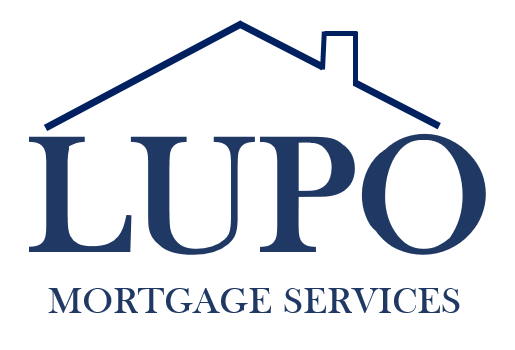First Time Buyer Ultimate Guide!

Written by Damon Pike – Principle Mortgage and Protection Advisor
Last updated: 23rd April 2024
Buying your first home is undoubtedly one of the biggest milestones in your life. Whilst it is an incredibly exciting time, it can also be stressful and daunting. Understanding the first time buyer mortgage process and what information you will need to provide along the way may feel overwhelming to begin with. This guide will help cut through some of the jargon and provide a simple overview of what you can expect in your journey to securing a mortgage for your first home.
You can also view a short video outlining the home buyer process Here
How much deposit do I need for a first-time buyer mortgage?
This will depend on the value of the property you are purchasing. There are a variety of products available, and some lenders will lend up to 95% of the property value for first time buyers. However, saving more than this will give you access to a wider range of products, usually including products with lower interest rates.
Subsequently, you may need to save at least 10% of the property’s value (for example if the house is £150,000, you may need a minimum of £15,000 deposit).
There are a small number of lenders willing to lend a mortgage to first time buyers for 100% of the property’s value meaning no deposit would be required. However, most but not all of these require some form of guarantee. Speak to an independent mortgage advisor to find out if you are eligible.
Can I get a 99% mortgage?
There are a few lenders starting to launch products with lower deposits to help first time buyers onto the property ladder. These low deposit first time buyer mortgages usually have stricter qualifying criteria and could work out more expensive in the long term. There are a small number of people that these could prove to be a lifeline, for example if you are unable to save for a deposit because you are in a renting rut. Speak to a mortgage advisor to see what is available and if it could work for you.
Can I use a Lifetime ISA with a Mortgage??
Yes! The Lifetime ISA (Individual savings account) has been designed to help save for a deposit for your first home or to use in later life. You can open an account between the ages of 18 and 40 for UK residents, and the Government will give you a Bonus of 25% of whatever you save – up to a maximum of £1000 per year. However, you may incur charges for any unauthorised withdrawals. Each mortgage applicant can have a separate account which may help with saving for a deposit quicker.
Do I need to be employed?
Firstly, you need a regular, reliable income in order to satisfy the lender that you will be able to meet your mortgage repayments. In addition to this, you need to have enough left over to account for future increases in interest rates or unexpected events. However, this income may come from employed or self-employed work.
The FCA (Financial Conduct Authority) regulate the industry and require lenders to make sure you can afford your mortgage before lending you the money; they don’t want you to start struggling and consequently risk your house being repossessed.
Can I use benefits or overtime to prove mortgage affordability?
Many lenders will accept additional income to prove mortgage affordability, which may be particularly helpful for first time buyers. Some lenders may be able to use 100% of overtime, secondary job income or employee benefits, (e.g. shift allowance) particularly if these are seen to be consistent. A number of lenders can even accept elements of state benefits like universal credit. Although any housing benefit elements would usually be discounted as these will cease once you are a home owner.
How much can I borrow?
Your income will be used to determine how much a lender may be prepared to lend to you. Income multiples used are typically around 4.5 x income for first time buyer mortgages. Since 1st August 2022, lenders were able to relax some of their affordability tests to help first time buyers. Further to this, lenders will also look at your other financial commitments to work out your overall affordability.
This includes but is not limited to:
- Monthly outgoings – including childcare, clothing etc.
- Household bills
- Existing debt repayments
Additionally, all lenders have their own set of criteria which can vary greatly, this means that while some lenders will be happy to provide a mortgage for you, others may not.
An independent mortgage advisor can look across the whole market for you to find which lenders will lend to you and give you an idea of how much they may be prepared to lend.
Find out how much you can borrow and how much it will cost you with our Mortgage Calculators
What other costs are involved?
The deposit for your house will be the biggest cost involved. However, there are many other costs associated with buying and moving homes that you should consider when working out your affordability.
These include but may not be limited to:
- Solicitor fees
- Survey costs
- Mortgage advice fee – at Lupo Mortgage Services, we do not charge a broker fee so this will not apply if you use us, however, some Mortgage Advice companies will charge for their services – always make sure you are aware of any fees and are happy before proceeding.
- Mortgage product fee
- Moving costs – vehicle hire etc.
- Buildings insurance
- Life insurance
- Furnishing / decorating costs
- Stamp duty – For a first time buyer purchasing a property worth less than £425,000, there is a stamp duty tax relief. The rates that apply are 0% for the first £425,000 and 5% between £425,001 and £625,000. (E.G. if you are a first time buyer purchasing a property worth £450,000, the stamp duty would be £1,250)
What documents will I need to provide?
To secure a mortgage, you will need to provide several pieces of documentation. This is to prove affordability as well as to ensure that there is no fraudulent activity or other reason why a lender should not provide you with a loan.
Some of the documents you will need include:
- Proof of identity
- Proof of address
- Bank statements
- Proof of income – Pay slips or tax returns if self-employed
- Proof of deposit
How long will it take to secure a mortgage offer?
The time taken will vary depending on individual circumstances.
The process of speaking to a mortgage advisor through to applying for a mortgage could be done in as little as a week; providing that all the documentation is in order and there are no complicated circumstances. Once the application is submitted, it is down to the lenders to assess the information and decide on whether to issue a mortgage offer.
This can be done in as little as 3 days but will normally take 2-3 weeks, sometimes more. For example, if they request any additional information or if they’re unusually busy. Therefore, applying to a lender who is likely to accept an application first time around will save a lot of time and effort. This is where using a mortgage advisor can be invaluable.
Do I need a mortgage offer before putting in an offer on a house?
Many estate agents will request to see proof that you are able to obtain a mortgage before taking a property off the market, this should not be a condition of passing the offer onto the seller.
This proof is known as a ‘Decision in Principle’ ‘Mortgage in Principle’ or an ‘Agreement in Principle’, these terms are interchangeable.
Your mortgage advisor will be able to obtain this for you. Once they’ve assessed your affordability and identified the most suitable lender for you, they can apply for a DIP/AIP/MIP. This is essentially a certificate from the lender that means providing the information supplied is correct, they may be happy to lend you up to a certain amount. This is different to a mortgage offer, which will come after a full application has been submitted to the lender.
We do not charge broker fees, but there are many other great reasons to use a mortgage advisor. See our top 10 reasons Here.
What happens once I’ve had an offer accepted on a house?
When you have had your offer accepted by the vendor (person selling the property), you should contact your mortgage advisor and let them know. They will confirm a few details with you, for example, the agreed purchase price, and details about the property. They will then double check that the lender that provided the DIP/AIP is still the most suitable option for you, before submitting the full application.
Your chosen lender will then review your application and decide whether to issue a formal mortgage offer.
Will my mortgage offer expire?
The majority of mortgage offers will be valid for 3 – 6 months, sometimes longer for New Build properties. This is usually enough time for the house sale to complete. However, if there are delays it is usually possible to get the offer extended. Your mortgage advisor can liaise with the lender to arrange an extension.
On the other hand, if the lender cannot extend your mortgage offer, your advisor will explain the reasons why and look to source a new product/lender for you.
Can someone else guarantee my mortgage?
If you’re struggling to secure a mortgage on your own, it is sometimes possible to get a guarantor mortgage. This is where a parent, guardian or close relative agrees to be accountable for your mortgage payments if you cannot meet them. However, there are still many criteria that need to be met for these and they should not be entered into lightly. The guarantor will also need to have their affordability assessed.
See our guide to Guarantor Mortgages here.
Other things to consider?
A house is one of the biggest financial commitments that you are likely to have in your lifetime. Therefore, it is important to consider how you will keep up your mortgage repayments if something unexpected happens. For instance, an accident or severe illness that will take you out of work for an extended period of time.
It is highly advisable to review what protection you have in place at the time of taking out a mortgage. For further information on the types of protection, see our Protection page here.
Do I need to use a Mortgage advisor?
As a First Time Buyer, even if you apply direct to a mortgage lender you will need an appointment with their mortgage advisor. However, they can only recommend products from their limited range. Lupo Mortgage Services does not charge broker fees for first time buyers, we just help to guide you through the process, and the lender pays us a commission. As a first time buyer there are many other reasons to consider using an independent mortgage advisor. If you’re still unsure, take a look at our top 10 reasons to use a mortgage advisor here.
And finally
If you need any more information, or you want to discuss your situation, enter your name, contact details and a short message using the form below and we will get straight back to you.

Principle Mortgage and Protection Advisor

Principle Mortgage and Protection Advisor

Damon Pike
Principle Mortgage and Protection Advisor
Call Damon on 07503 942280
or send us a message using this form:
Send us a message:

Benefits of Using a Mortgage Advisor

Mortgages for Self-Employed

More Articles
Lupo Mortgage Services is based in Wolverhampton, but we operate throughout the whole of England and Wales.
Think carefully before securing debts against your home. Your home may be repossessed if you do not keep up repayments on your mortgage or any other debt secured on it. Please note that some mortgages such as commercial BTLs are not regulated by the FCA.
Lupo Mortgage Services is an appointed representative of Julian Harris Mortgages Ltd which is authorised and regulated by the Financial Conduct Authority, No. 304155. The Financial Ombudsman Service (FOS) is an agency for arbitrating on unresolved complaints between regulated firms and their clients. Full details of the FOS can be found on its website at www.financial-ombudsman.org.uk
